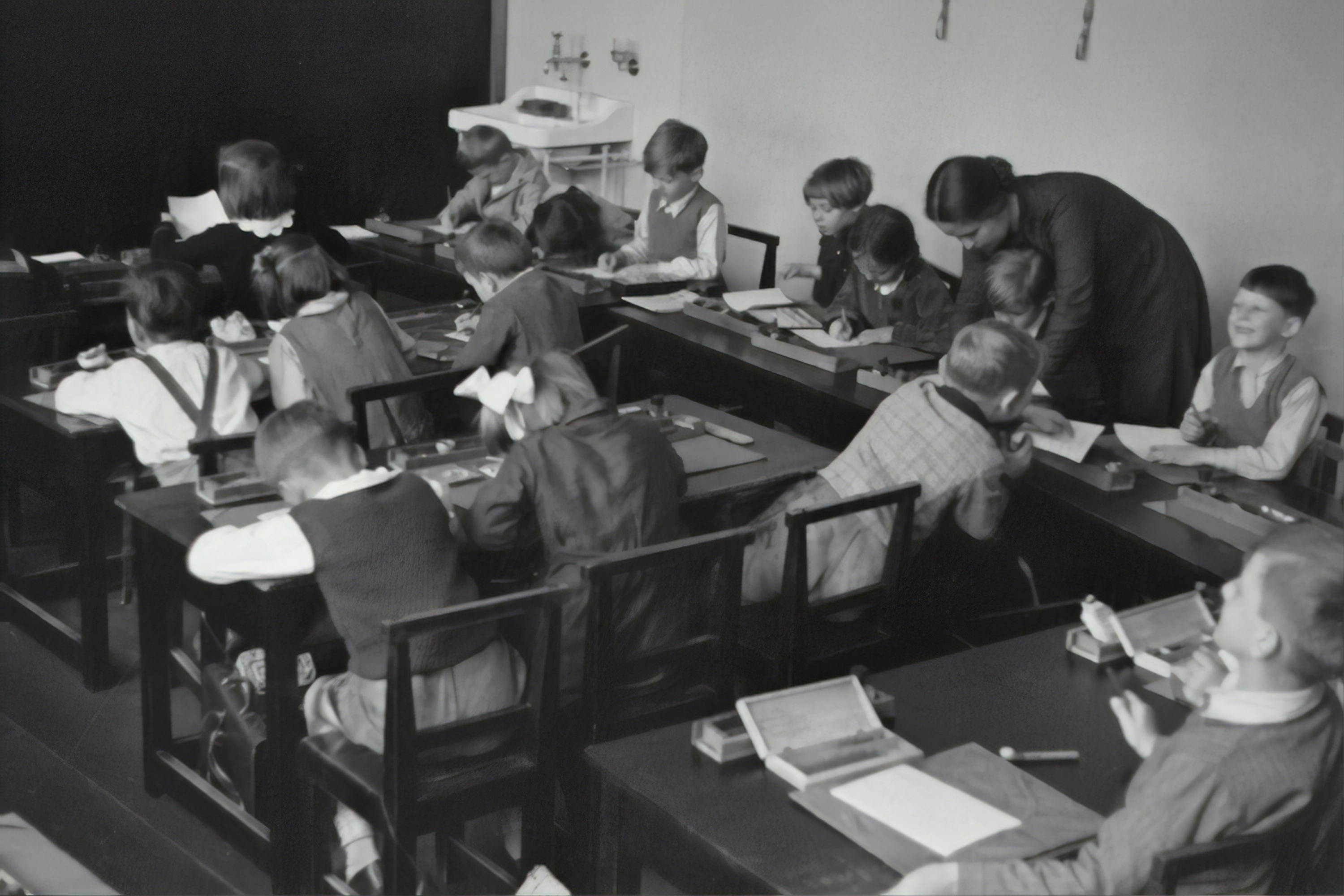Introduction to the 4Cs of Education
In today’s fast-paced world, educational paradigms are undergoing significant transformations to meet the demands of an ever-evolving job market and societal expectations. At the forefront of this shift are the 4Cs of education: Collaboration, Communication, Critical Thinking, and Creativity. These four competencies are recognized as crucial skills that students must cultivate to navigate the complexities of modern life effectively.
Collaboration emphasizes the importance of working harmoniously with others. In an increasingly interconnected global environment, the ability to engage in teamwork is essential. It allows individuals to share ideas, leverage diverse perspectives, and achieve common goals. The essence of collaboration is reflected in various settings, including workplaces, community projects, and even social initiatives, demonstrating its significance in fostering synergy and innovation.
Similarly, Communication serves as the cornerstone of effective interaction. As society becomes increasingly reliant on digital platforms, the capacity to articulate thoughts clearly and listen actively is paramount. Whether through verbal, non-verbal, or digital communication, proficiency in conveying messages is critical for personal and professional success. This skill is indispensable in fostering relationships, facilitating understanding, and driving change.
Furthermore, Critical Thinking equips students with the tools to assess information critically and make informed decisions. In an age inundated with data, discerning credible sources and forming sound judgments is vital. Critical thinkers can analyze situations, evaluate different viewpoints, and solve problems creatively, which are sought-after capabilities in numerous fields.
Lastly, Creativity encourages innovative thinking and the exploration of novel approaches to challenges. As automation and technology reshape industries, the ability to think outside the box and devise inventive solutions is more valuable than ever. By nurturing creativity, educators prepare learners to not only adapt to changes but also contribute meaningfully to advancements within their communities.
In essence, the integration of the 4Cs within educational systems is pivotal in developing a workforce that is well-equipped to tackle contemporary issues and contribute positively to society. As educational frameworks evolve, these competencies stand as foundations for a holistic and engaging learning experience.
Collaboration in the 21st Century Classroom
Collaboration is increasingly recognized as a foundational element of effective education in the 21st century. The shift from traditional learning methods to collaborative learning environments has transformed not only how students interact with each other but also how they engage with knowledge. In contemporary academic settings, teamwork enhances student engagement and ultimately leads to improved learning outcomes. By working together, students can develop essential skills such as communication, critical thinking, and problem-solving, which are vital in today’s interconnected world.
One effective strategy educators can employ to promote collaboration is the implementation of project-based learning (PBL). This approach encourages students to work together on projects that require them to apply their knowledge and skills in real-world scenarios. By collaborating on projects, students learn to leverage each other’s strengths, thereby fostering a spirit of teamwork. Furthermore, this method not only increases engagement but also prepares students for future workplace dynamics where collaboration is crucial.
Another robust strategy is the use of technology to facilitate collaboration. Tools such as collaborative software, discussion boards, and digital platforms enable students to work together irrespective of geographical constraints. These technologies not only support real-time interaction but also allow for fostering a community of learning where students can share ideas and feedback. This engagement often leads to a deeper understanding of the subject matter and a more enriching educational experience.
In fostering collaboration among students, it is essential for educators to create a classroom culture that values teamwork and mutual respect. Setting clear expectations around collaborative tasks and providing defined roles within groups can facilitate smoother collaboration. Additionally, cultivating a supportive environment where diverse ideas are welcomed is critical in enhancing the collaborative spirit. Overall, by embedding collaboration into the educational fabric, educators can prepare students for the collaborative nature of modern workplaces.
The Role of Communication Skills in Education
Communication skills play a pivotal role in today’s educational framework, serving as a cornerstone for both academic achievement and professional success. Effective communication not only facilitates knowledge transfer but also fosters collaboration and critical thinking among students. In an age where information is rapidly disseminated through various channels, the ability to articulate ideas clearly and persuasively has become essential.
Verbal communication skills are fundamental in the classroom environment. Teaching students how to express their thoughts verbally helps them develop confidence and clarity. Strategies such as group discussions, presentations, and debates can encourage students to practice their speaking abilities and receive constructive feedback. Moreover, educators can promote active listening through role-playing exercises, which can enhance comprehension and engagement within the learning process.
Non-verbal communication is also significant. Body language, facial expressions, and eye contact can convey messages that support or contradict spoken words. Educators should guide students in understanding these non-verbal cues, emphasizing the importance of awareness of one’s own body language and interpreting the signals from others. This skill set is particularly relevant in diverse classrooms, where students may have different cultural backgrounds that influence their communication styles.
In today’s digital age, digital communication skills are equally critical. With the rise of online learning platforms, students must be proficient in using various technological tools to communicate effectively. Educators can incorporate digital literacy into their curriculum, teaching students how to compose professional emails, engage in virtual discussions, and utilize social media responsibly for educational purposes. This holistic approach to communication skills not only prepares students for academic challenges but also equips them for future careers where effective interaction through multiple mediums is crucial.
Critical Thinking and Creativity: Foundations for Innovation
In the rapidly changing landscape of the modern world, critical thinking and creativity have emerged as essential skills for effective problem-solving and innovation. These competencies empower individuals to analyze complex situations, evaluate diverse perspectives, and devise innovative solutions that are crucial for addressing contemporary challenges. Educational systems must prioritize fostering these skills to prepare students for the demands of the future workforce.
Critical thinking enables learners to break down information, assess evidence, and distinguish between fact and opinion. By engaging in critical analysis, students become more discerning consumers of information, which is vital in an age characterized by abundant and often misleading data. Creativity complements critical thinking by encouraging students to explore new ideas and approaches, allowing them to think outside the box when faced with various problems. Together, these skills equip learners with the tools needed to navigate uncertainty and adapt to change.
To effectively integrate critical thinking and creativity into educational practices, a variety of strategies can be employed. These include inquiry-based learning, where students pose questions and seek answers through research and collaboration. Project-based learning presents learners with real-world challenges that require them to innovate and apply critical thinking skills. Additionally, techniques such as brainstorming sessions and creative workshops encourage students to express their thoughts freely, fostering an environment conducive to exploration and experimentation.
Numerous case studies illustrate the positive impact of integrating critical thinking and creativity exercises in educational frameworks. For instance, some institutions have reported enhanced student engagement and improved academic performance when these skills are prioritized in the curriculum. By cultivating an educational atmosphere that emphasizes these foundational skills, educators can significantly contribute to developing adaptable and innovative individuals ready to tackle the complexities of today’s world.

